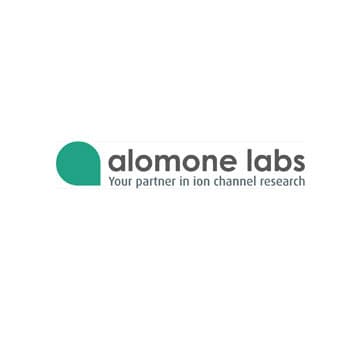
Supplier:
Alomone Labs Ltd.Cat no: P-150
hPleiotrophin
Recombinant, E. coli
Pleiotrophin (PTN), is a heparin-binding neurotrophic factor. Cells that express either PTN or PTN mRNA include osteoblasts, fetal chondrocytes, astrocytes, oligodendroglia, neurons, Schwann cells, keratinocytes of the stratum basale, and selected tumor cell lines. The expression of PTN increases during the process of brain embryogenesis and reaches maximum levels at time of birth.
The role of PTN in neurogenesis and neural plasticity has been revealed by various studies. Embryonic cortical neurons adhere to and extend neurites on PTN coated substratum. PTN also induces, in vitro, migration of osteoblasts. PTN coated membrane enhances neuronal migration by haptotaxis. PTN bound to agarose beads induces clustering of acetylcholine receptors on embryonic myoblasts.
PTN is expressed in the CA1 region of rat hippocampus in an activity-dependent manner, and is suggested to be involved in the regulation of synaptic plasticity in the hippocampus.
Transfection with PTN cDNA, transforms murine 3T3 fibroblasts into cells that form extensively metastasizing tumors in nude mice. PTN is highly expressed in choriocarcinoma, melanoma and, prostate carcinoma. Serum PTN increase in patientsпїЅпїЅwith pancreatic and colon carcinomas.
After focal forebrain ischemia, PTN is expressed in astrocytes, OX-42 positive macrophages, and endothelial cells in areas of developing neovascularization. PTN is also deposited in senile plaques in Alzheimer's disease and Down's syndrome.
Neurotrophic Factors, Heparin-Binding Growth Factors
Prices direct from Alomone Labs Ltd.
Quick response times
Exclusive Biosave savings/discounts
More from Alomone Labs Ltd.
Latest promotions
Spend less time on DNA cleanup so you can do more science. The MSB Spin PCRapace is the fastest way to purify your DNA from PCR, restriction digestion, and...
New brilliant antibodies, and new lower prices!For flow cytometry reagents in general, \"bright is better.\" The violet-excitable BD Horizon™ BV421 and...
As an incentive to qualify our BSA, we are offering a 20% discount when you purchase your first 100g, 500g or 1000g of any grade of Bovine Serum Albumin....
It is not every day that you are given something for nothing. We are giving away additional spectrophotometer software.Cecil Instruments have enhanced the...
10% Discount on 2 Rabbit Polyclonal Antibody Service. With over 20 years experience, SDIX has developed into the premier US custom antibody producer,...
We're so sure that you'll prefer Cayman Assay kits over your present brand that we're willing to give you a free assay kit to prove it!
For the past decade scientists have extensively used ATS secondary toxin conjugates to make their own targeted toxins for in vitro use.The ability to combine...
Did your supplier increase the price of Fetal Bovine Serum? Did they substitute the US Origin with USDA? Well say no more! Innovative Research is still...
Bulk Cytokines with Custom Vialing.20 - 50% off cytokines, growth factors, chemokines and more...For a limited time Cell Sciences is offering substantial...
Are you planning to have a customised antibody made for your research?Since 2000, Everest has been producing a catalog containing thousands of affinity...
Jenway’s 73 series spectrophotometer range provides four models with a narrow spectral bandwidth of 5nm and an absorbance range of –0.3 to 2.5A,...
Top suppliers
United States Biological
230753 products
Carl Zeiss Microscopy
27 products
Promega Corporation
11 products
Panasonic Healthcare Company
5 products
Life Technologies
1 products
Nikon Instruments Europe
11 products
Olympus Europa Holding GmbH
3 products
Leica Microsystems, Inc.
10 products
GE Healthcare Life Sciences
2 products
Tecan Trading AG
19 products
Beckman Coulter, Inc.
1 products
AB SCIEX
3 products
BD (Becton, Dickinson and Company)
1 products
RANDOX TOXICOLOGY
5 products
Randox Food Diagnostics
6 products



















